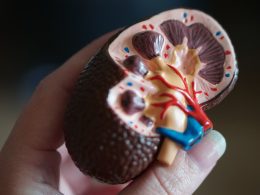Norovirus is one of the most common and easily transmitted illnesses in the world, yet it remains largely misunderstood. It’s estimated that up to 20 million cases occur each year in the United States alone, making this an important condition to be aware of. In this blog post, we’ll cover everything you need to know about norovirus and how to prevent it. From understanding what exactly norovirus is, to identifying its symptoms, we’ll provide a comprehensive overview that will give you peace-of-mind when it comes to your own health and safety. Let’s dive in!
Symptoms of Norovirus
Norovirus is the most common cause of viral gastroenteritis in humans. It is a highly contagious virus that can cause severe vomiting and diarrhea. The symptoms of norovirus usually last for one to three days, and most people recover completely without treatment. However, the virus can sometimes lead to dehydration, which can be dangerous for young children, the elderly, and people with weakened immune systems.
The most common symptom of norovirus is vomiting, which usually begins suddenly and may occur several times a day. Other symptoms include watery diarrhea, stomach cramps, nausea, and fever. People with norovirus are also at risk for dehydration, so it is important to drink plenty of fluids if you or your child has any of these symptoms. If you or your child has severe vomiting or diarrhea, please see a doctor immediately as dehydration can be very dangerous.
How is Norovirus Transmitted?
Norovirus is a highly contagious virus that can be transmitted through contaminated food or water, contact with an infected person, or contact with contaminated surfaces. The virus is typically spread through poop, and it can be found in the vomit or stool of an infected person. It can also be found in contaminated food or water. Symptoms of norovirus include vomiting, diarrhea, abdominal pain, and fever. The virus is most commonly seen in the winter months, but it can occur any time of year. There are several steps you can take to prevent norovirus:
-Wash your hands thoroughly and often, especially after using the restroom or handling food
-Avoid touching your face
-Clean and disinfect surfaces that may be contaminated
-Stay home if you are sick
-Wash fruits and vegetables thoroughly before eating them
-Cook meat and seafood properly
Treatment for Norovirus
Norovirus is highly contagious and causes severe vomiting and diarrhea. There is no specific treatment for norovirus, but there are things you can do to ease your symptoms and speed up your recovery. Drink plenty of fluids to stay hydrated and help your body replace the fluid it’s losing. Drink clear fluids like water, broth, or diluted fruit juices. Avoid dairy products, caffeine, and alcohol, which can make diarrhea worse. Eat small meals more often throughout the day instead of three large meals. Stick to bland foods like rice, bananas, toast, and crackers. Avoid fatty or greasy foods as well as anything spicy or acidic, which can irritate your stomach. Get rest so your body can focus on fighting the virus. Most people recover from norovirus within a few days without any complications
How to Prevent Norovirus
Norovirus is a highly contagious virus that causes vomiting and diarrhea. It is most commonly spread through contaminated food or water, contact with someone who is infected, or touching surfaces that have been contaminated with the virus. The best way to prevent norovirus is to practice good hygiene and cleanliness. Here are some tips on how to prevent norovirus:
-Wash your hands thoroughly and often, especially after using the restroom, changing diapers, and before eating or preparing food.
-Avoid touching your face with your hands.
-Stay away from people who are sick.
-Disinfect surfaces that may be contaminated with the virus, such as doorknobs, countertops, and handles.
-Wash fruits and vegetables thoroughly before eating them.
-Cook meat and seafood properly.
-Practice safe food handling by keeping food clean and cooked properly.
Conclusion
Norovirus is a very contagious virus that can cause severe gastrointestinal symptoms. Fortunately, there are several steps you can take to reduce your risk of catching norovirus and prevent its spread, such as washing your hands regularly, avoiding contact with sick people, and cleaning surfaces thoroughly. With these preventive measures in place, you’ll be able to protect yourself and those around you from the dangers of norovirus infection.












